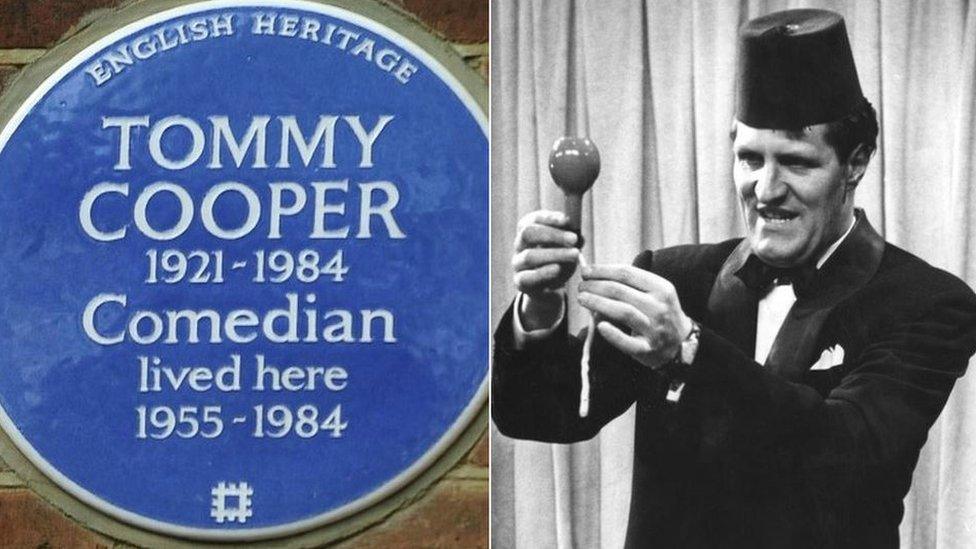England's Bobby Moore awarded blue plaque on Barking home
- Published
Bobby Moore set up two England goals in the 1966 World Cup final (Footage courtesy of British Pathe)
Bobby Moore, the only England captain to ever win the World Cup, has been honoured with a blue plaque.
The memorial has been placed on his childhood home at 43 Waverley Gardens in Barking, east London, where he first learned to play football.
As well as captaining the team, Moore set up two of Geoff Hurst's goals in the 1966 final before receiving the Jules Rimet trophy from the Queen.
He was described as "one of the greatest" by ex-FA chairman Greg Dyke.
'Tenacity and industry'
Mr Dyke, who is an English Heritage Blue Plaque Panel member, said the plaque "honours... the house and the streets where he grew up and first learned his footballing skills".
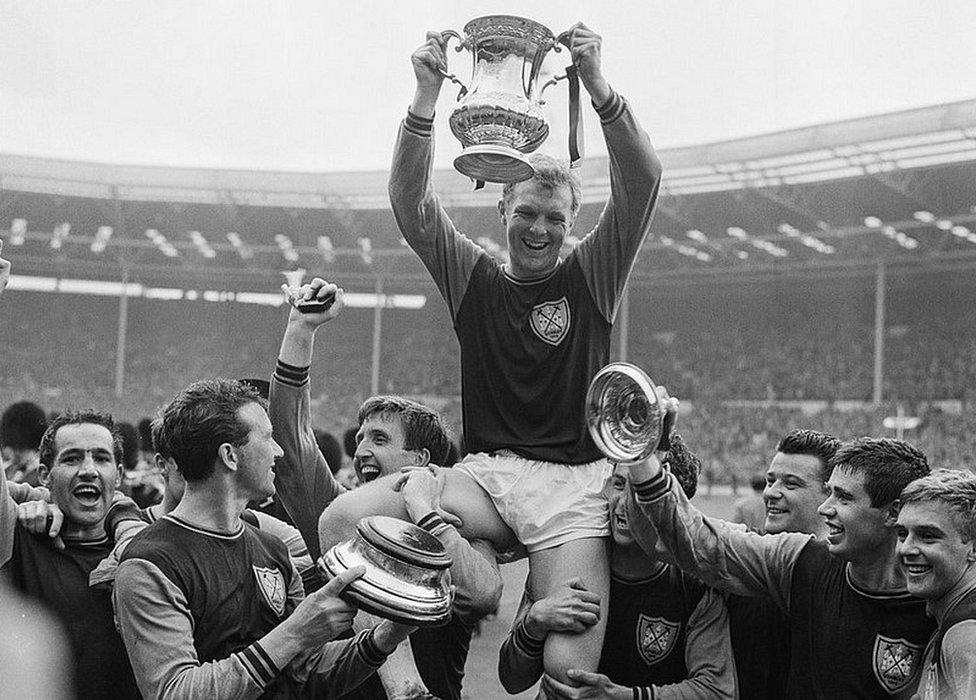
Moore won the 1964 FA Cup (seen here) and 1965 European Cup Winner's Cup with West Ham
Bobby Moore, who was born at Upney Hospital in Barking in 1941, developed his footballing skills while playing with his father and uncle in Greatfields Park, near to 43 Waverley Gardens.
He was living in the house when he won his first silverware, the Crisp Shield in the 1950-51 season, and when he joined West Ham United at the age of 16.
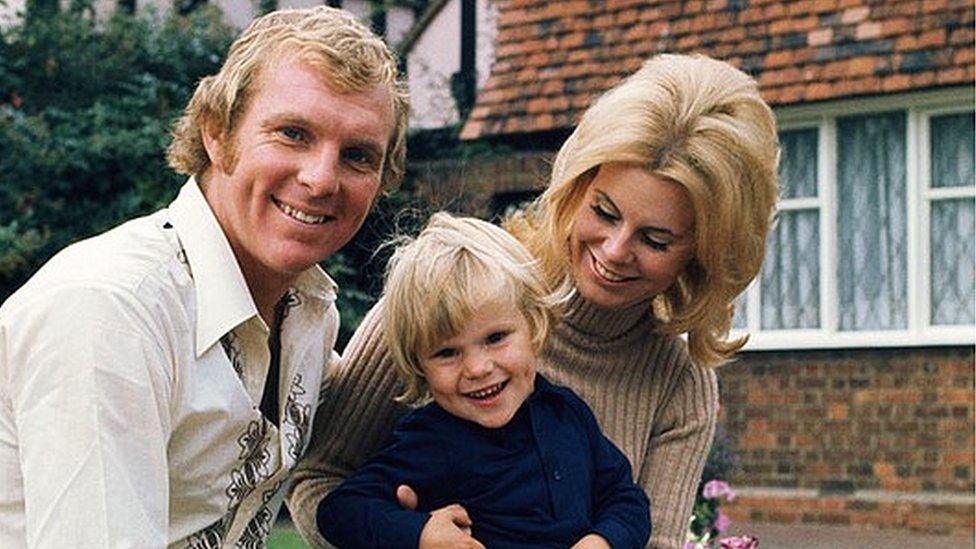
The house appears on both Moore's birth certificate and his marriage certificate to wife Tina
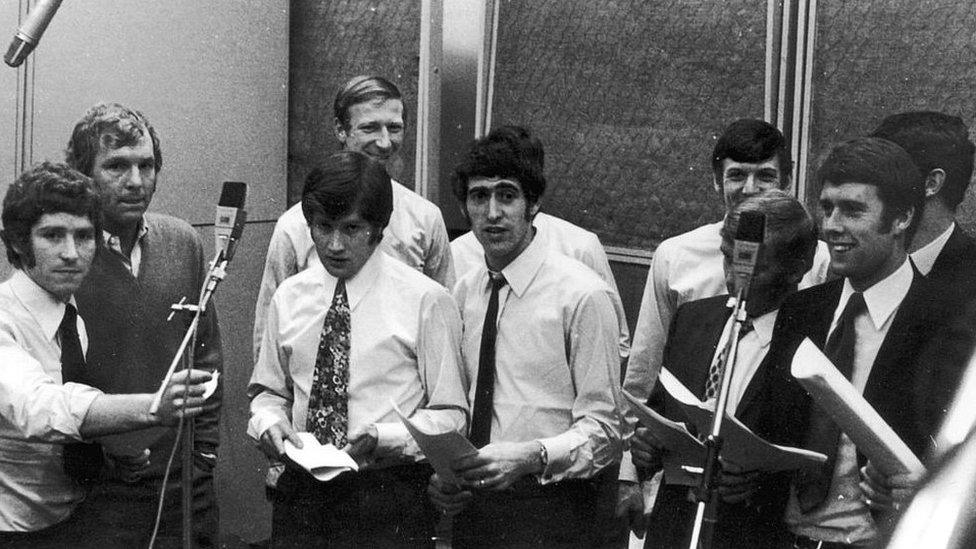
As captain, Moore (second from left) appeared on the England team's 1970 World Cup song Back Home
At the time, a scout for the club said Moore "would not set the world alight" but praised his "tenacity and industry".
He was appointed England captain in 1963, a year after being a surprise call-up for the 1962 World Cup.
Moore's father, known as Big Bob, watched the 1966 final on television at 43 Waverley Gardens, although his mother was too nervous so spent the game potting plants in the garden.

Bobby Moore's football facts
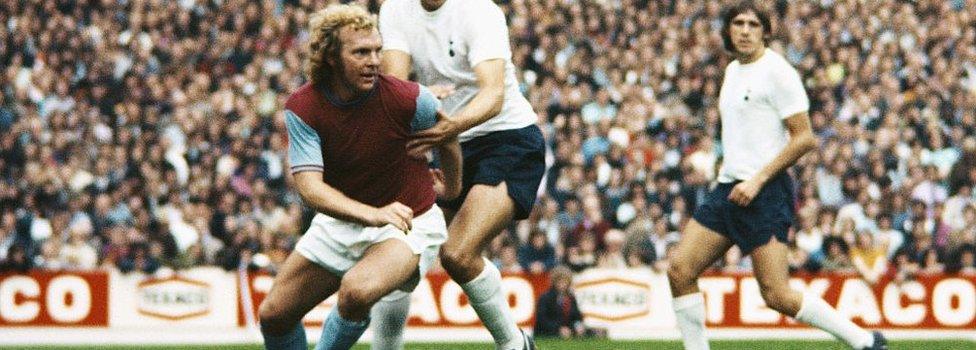
Signed for an initial wage of £12 a week when he became a professional for West Ham
Made his West Ham debut on 8 September 1958 and was a regular for the team by 1960, making 647 appearances overall
Captained West Ham to victory in the FA Cup Final in 1964 and the European Cup Winners' Cup the following year
Led his country in the 1970 World Cup in Mexico where England were eliminated in the quarter-finals by West Germany
Given final England cap in 1973, reaching 108 appearances for his country, the fifth in the all-time list
He is the first footballer to receive a blue plaque
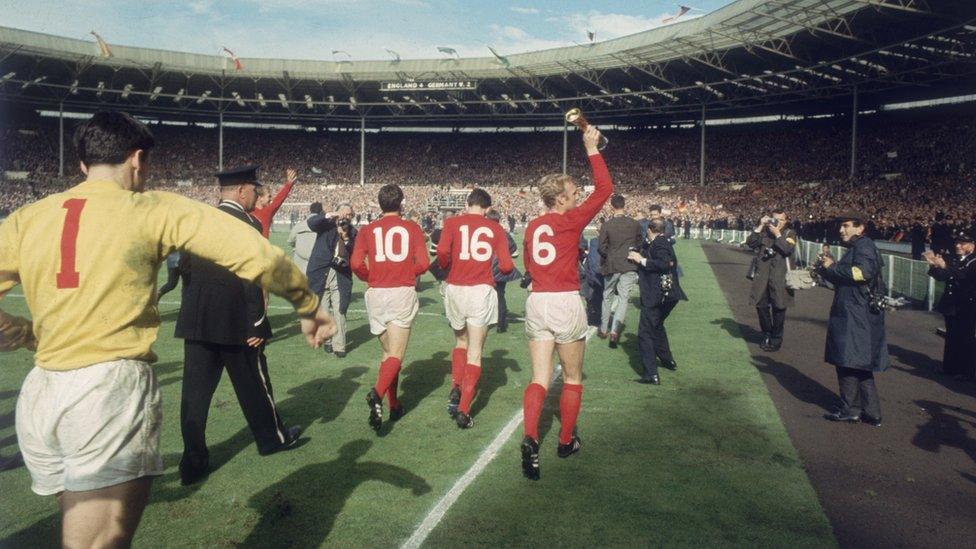
Bobby Moore's success with the 1966 World Cup squad still looms large over England football teams to this day
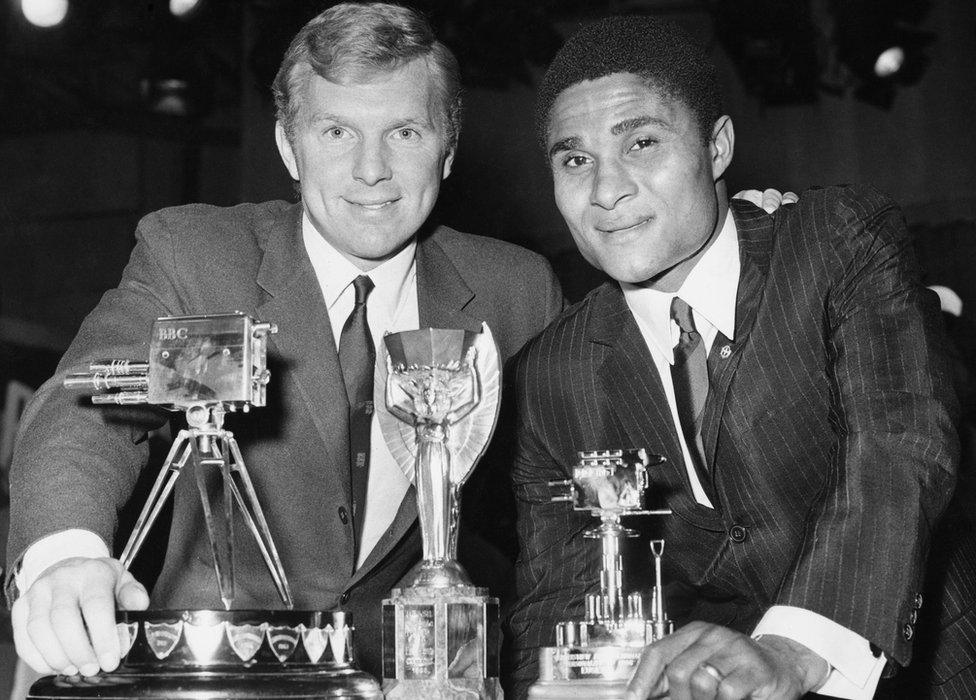
Moore, pictured with Portuguese star Eusebio, won the sports personality of the year award in 1966 and was made an OBE in 1967
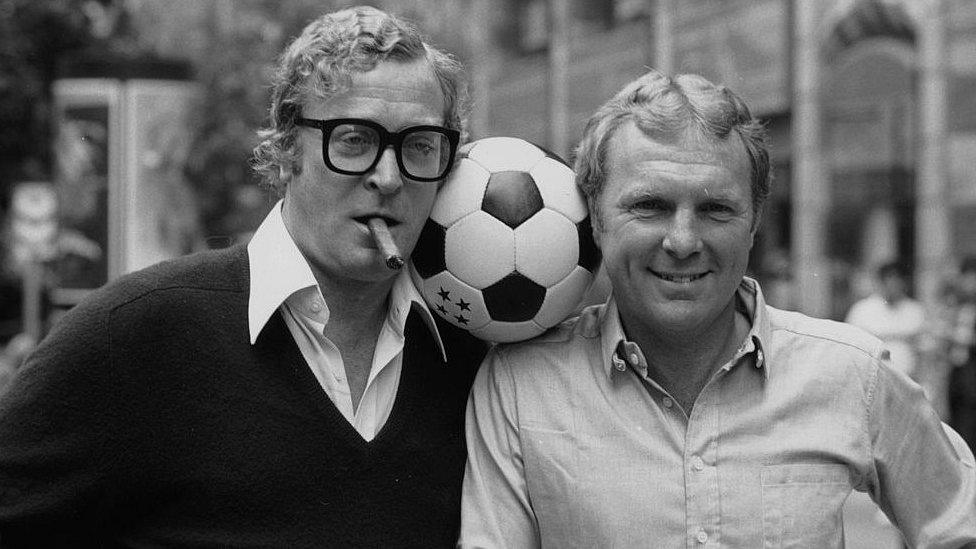
He appeared alongside Pele, Michael Caine and Sylvester Stallone in the 1981 film Escape to Victory
After retiring, Moore enjoyed a career in the media as lead sports columnist for the Sunday Sport and a football analyst on radio for Capital Gold.
He died from cancer on 24 February 1993, aged 51, a week after making his final radio commentary.
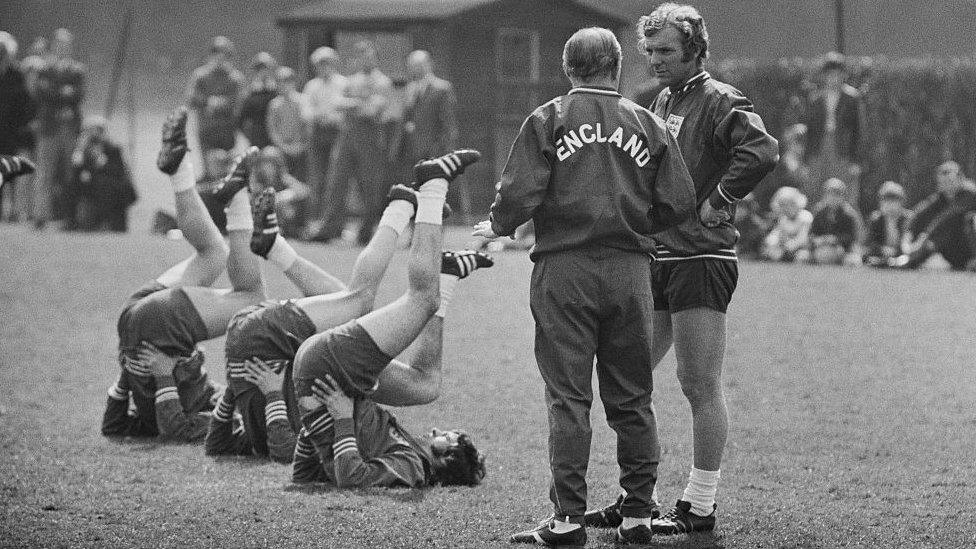
Alf Ramsay made Bobby Moore England captain in 1963
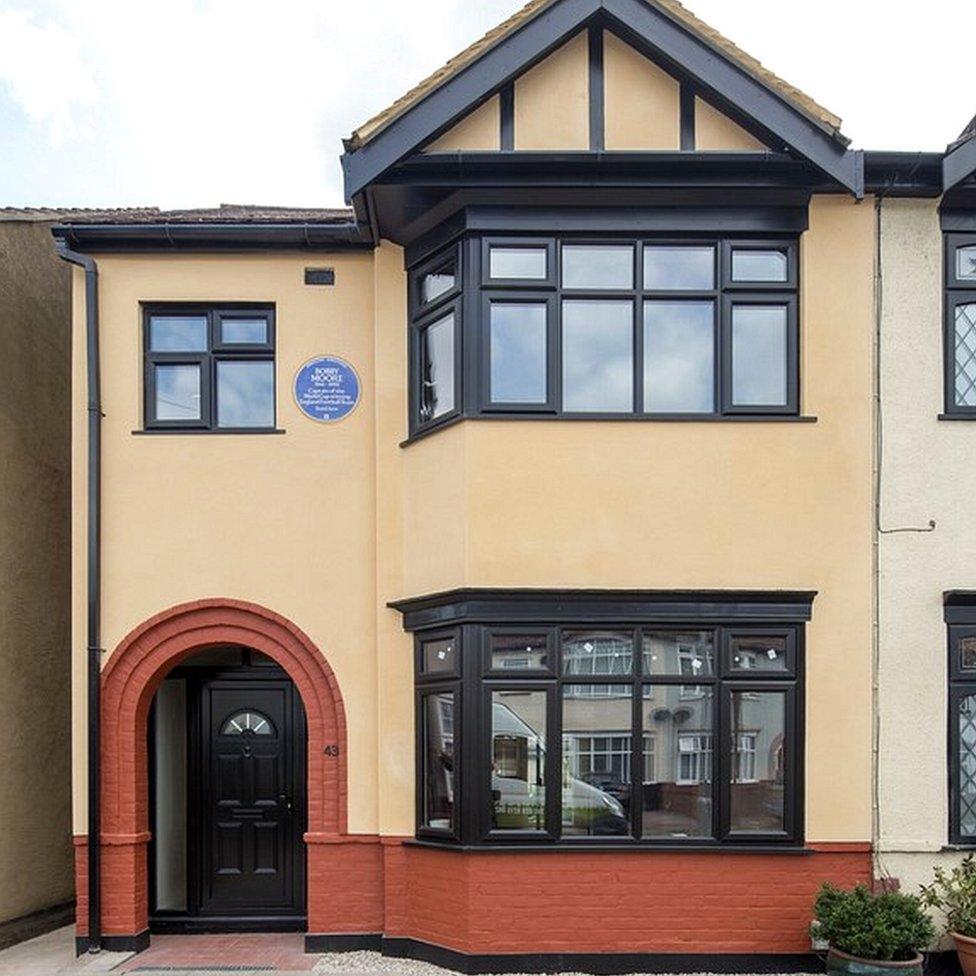
Moore developed his footballing skills while living at 43 Waverley Gardens
His daughter Roberta said her father would be "truly humbled and deeply touched" by the blue plaque.

Blue Plaque facts
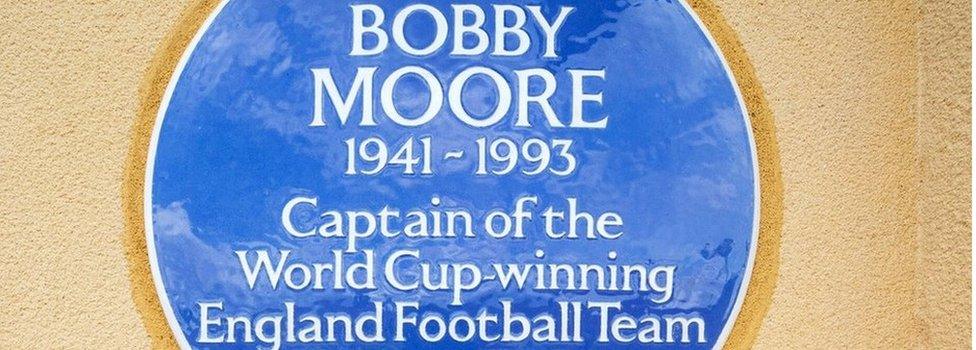
The scheme began in 1866 after the idea of erecting "memorial tablets" was first proposed by William Ewart MP in the House of Commons in 1863
The first plaque was for the poet Lord Byron, although this was lost when the building it was on was demolished in 1889
More than 900 plaques have been unveiled across London
An official plaque can only be proposed for a person who has been dead for at least 20 years
A plaque put up in Chalk Farm in 1937 to mark Karl Marx's final address had to be taken down because it was repeatedly vandalised

- Published24 July 2016
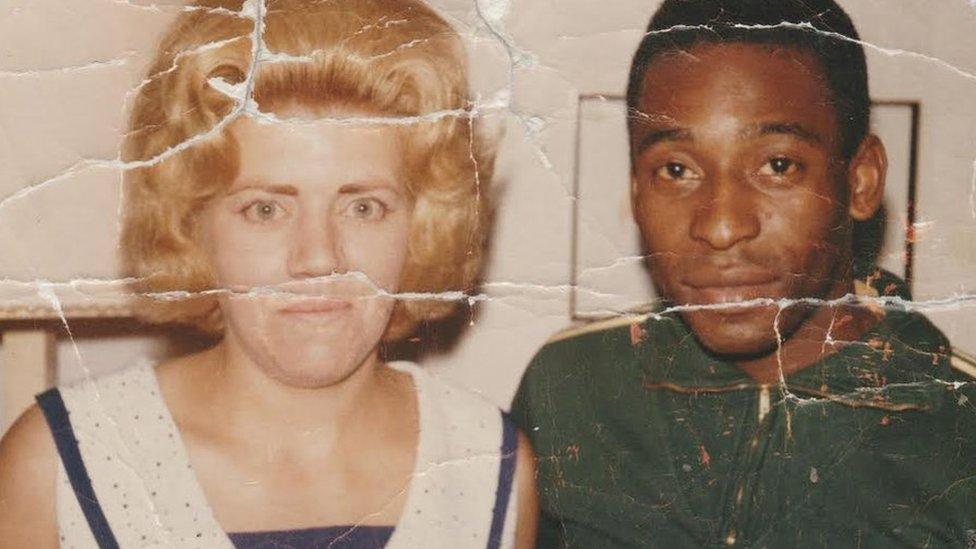
- Published20 April 2016
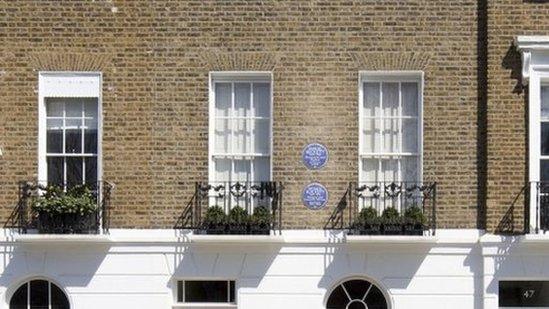
- Published29 May 2016
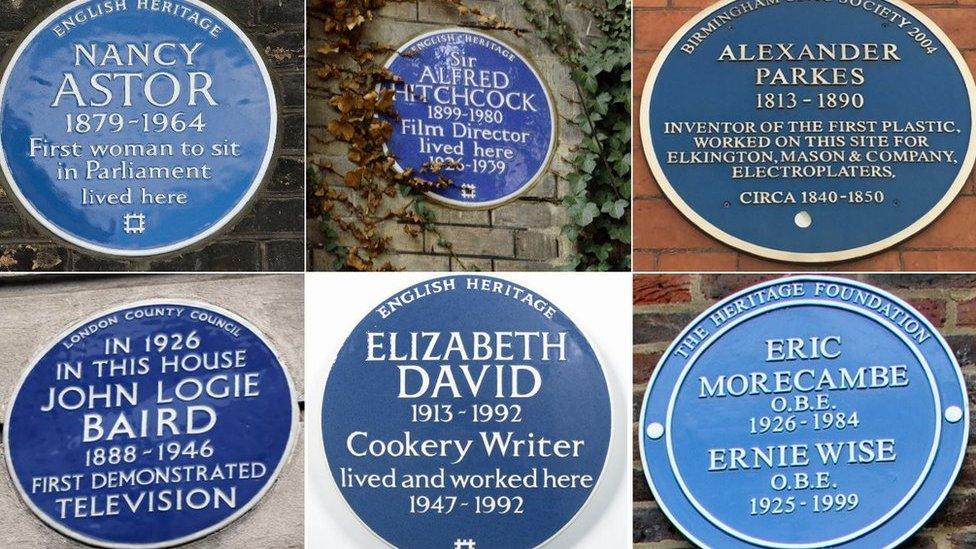
- Published1 March 2016
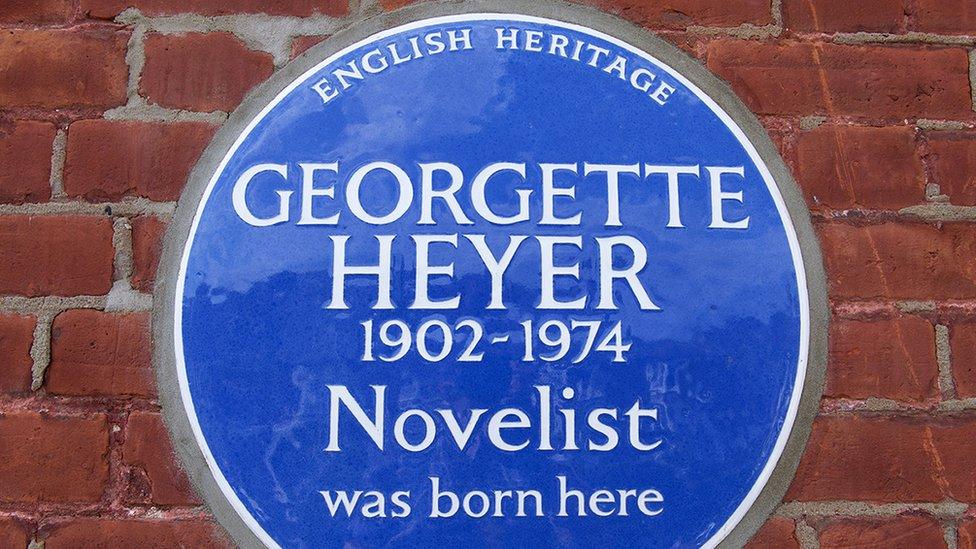
- Published13 May 2016
